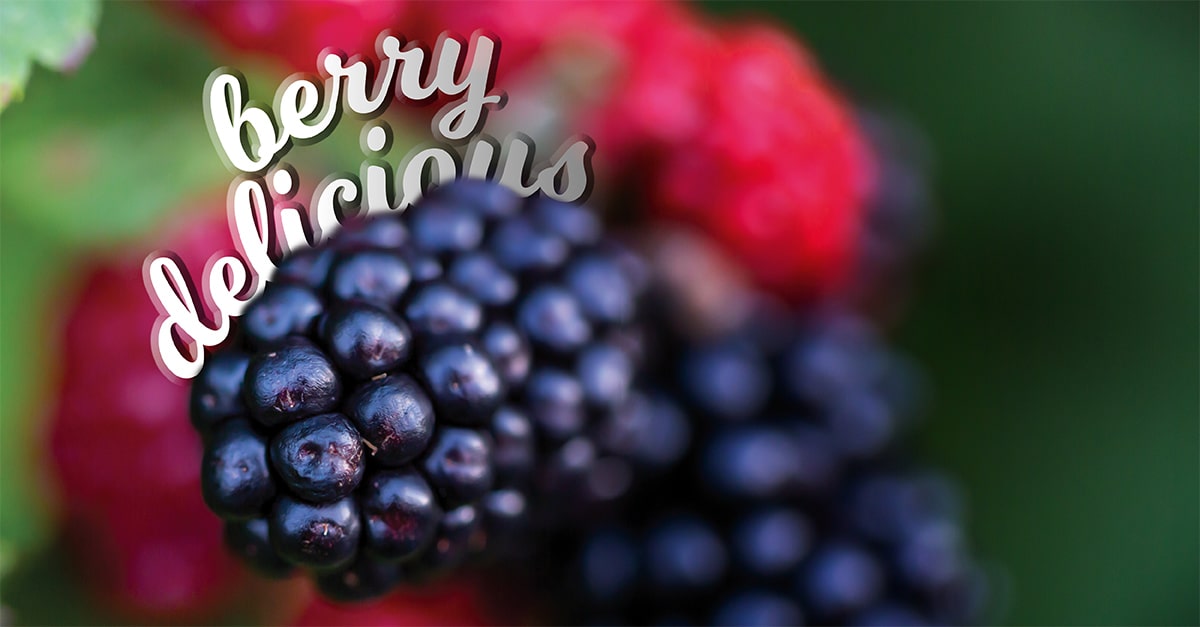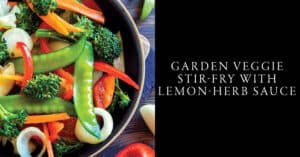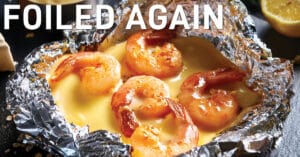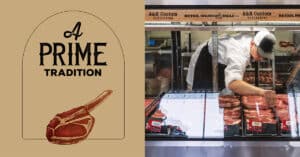Berry Delicious
Rudy’s Boysen Berry Farm…
With a maiden name of Boysen, Jeanette “Nettie” Boysen Fitzgerald knew she had a connection to the boysenberry plant via her grandfather, Rudy Boysen, who developed it through cross-pollination in a Napa creek bed in 1923. She also knew his vines were the starts to Walter Knott’s famous berry farm and its beloved jam. “But I didn’t know certain important details about my grandfather’s story until I was contacted by a historian,” she says.
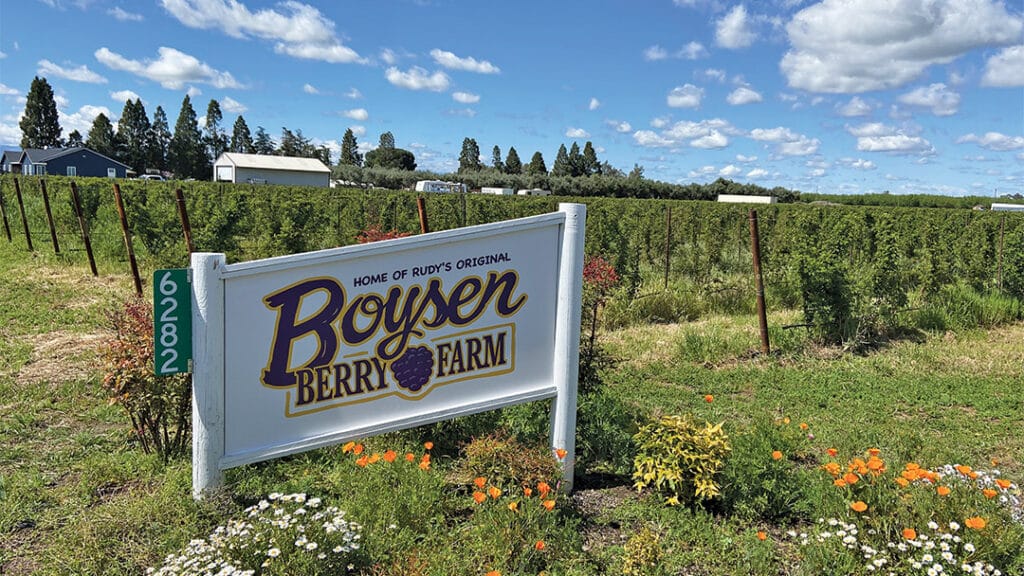
When Orange County historian Chris Jepsen called looking for information for an article he was developing about her grandfather, opportunities opened up that she never dreamed were possible. “The part that I didn’t know is the part that changed my life,” says Boysen Fitzgerald, who now operates a boysenberry farm in Orland with her husband, Tom Fitzgerald.
When Jepsen called in 2016, the couple was living in Las Vegas where she was a special education teacher and he was running his own business designing and building trade show exhibits. “He was in the midst of writing an article that he co-authored with Steve Faessel, also an historian,” Boysen Fitzgerald says of Jepsen. While Rudy Boysen is known as the developer of the boysenberry, he also had a distinguished career as the superintendent of parks in Anaheim. He died young in 1950 due to complications from a work-related fall and never fully developed his fame with his eponymous berry.
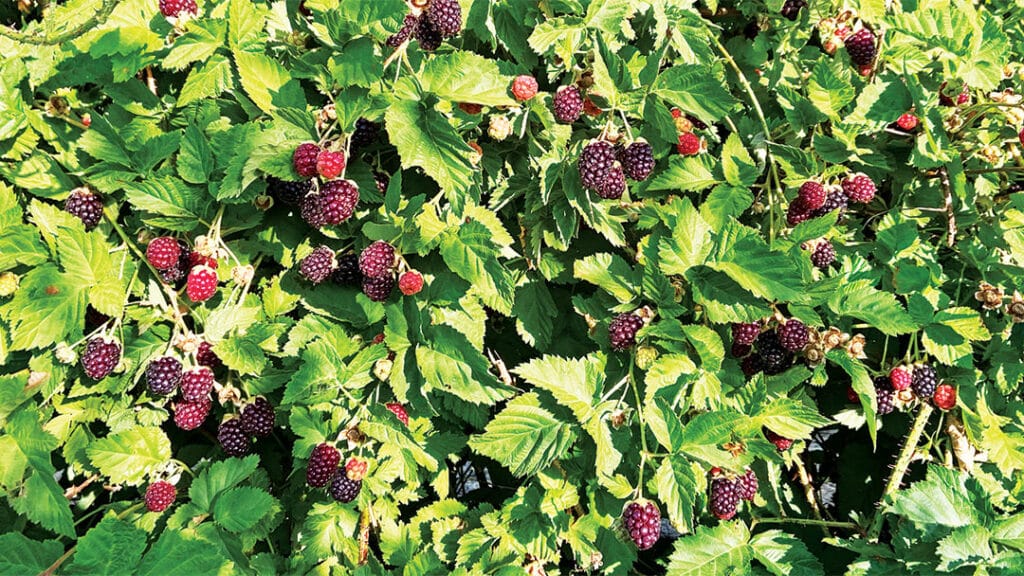
What Boysen Fitzgerald didn’t know was that in 1955, her great uncle — the oldest brother of her grandfather — had received permission to unearth the original boysenberry vine Rudy created and relocated it from Napa to Merced. “That vine was only shared with family,” says Boysen Fitzgerald. In 1976 her great aunt Gussie gifted a shoebox of starts to Alice Masek at a family wedding. Masek promptly planted them in Castro Valley, where the plants still thrive.
Boysen Fitzgerald and Masek were connected via Jepsen, and this is where the Fitzgeralds began life in an unexpected direction. Masek shared 24 boysenberry plants with the couple that they had no room to plant in Las Vegas. A friend five hours away offered a corner of their vineyard and Tom set out propagating 900 tip-starts from the original 24 plants.
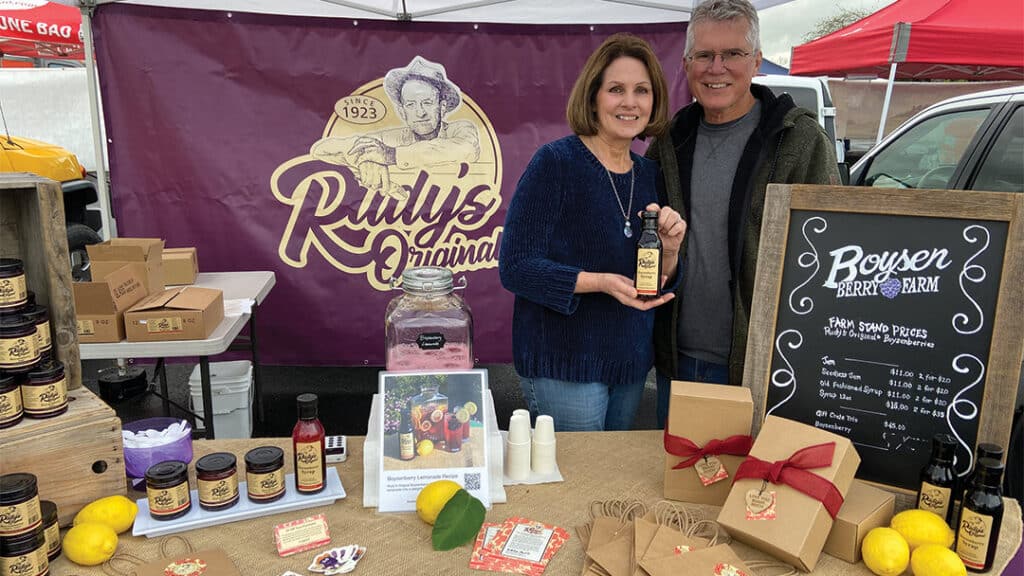
Then the couple began looking for farmland.
The location of Rudy’s Original Boysen Berry Farm, established in 2018 in Orland, has the right soil and climate for all things boysenberry, and is the place where Boysen Fitzgerald is proudly carrying on the legacy of her grandfather. The farm offers bare root and potted boysenberry plants, a U-pick experience at harvest time, and sells boysenberry jams and syrups year-round. The latter gets shipped nationwide.
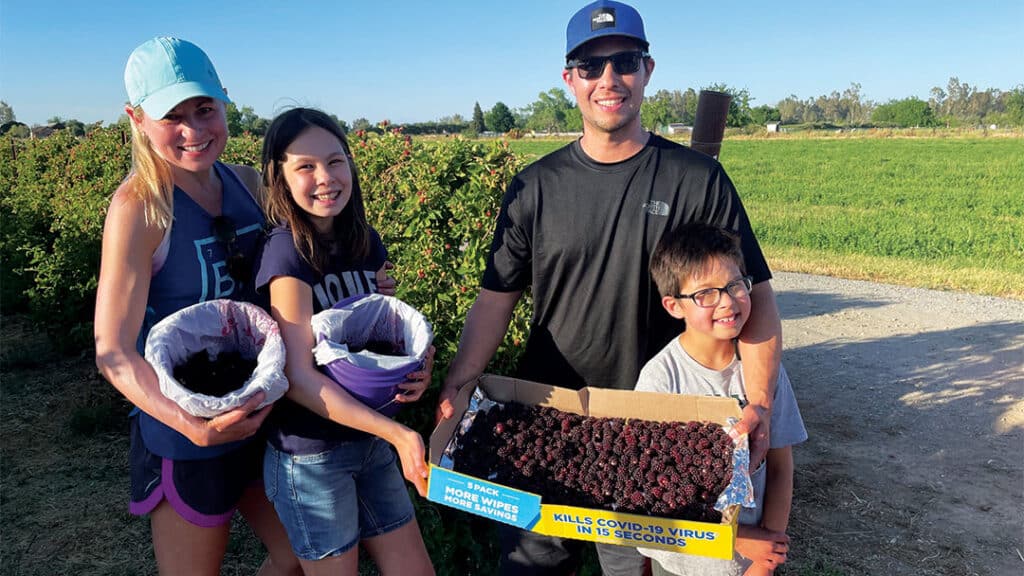
“Neither of us ever dreamed that we would be farmers,” Boysen Fitzgerald says. “We had to be schooled on it really quick.” The couple also had to develop recipes for jams and syrups, which they handcraft in a commercial kitchen on a weekly basis from berries they freeze at harvest.
While boysenberries are popular and beloved for their big and juicy size, their exact provenance was unknown until Boysen Fitzgerald contacted a U.S. Department of Agriculture official in Corvallis, Ore. “He was an amateur horticulturalist,” says Boysen Fitzgerald of her grandfather. “He developed this boysenberry through cross-pollination. As an amateur, he wasn’t sure what took.” A graduate student intern at the Corvallis USDA compared DNA of Boysen Fitzgerald’s plants with that of 27 other varieties of boysenberry in their database and determined that the parentage is marionberry and loganberry.
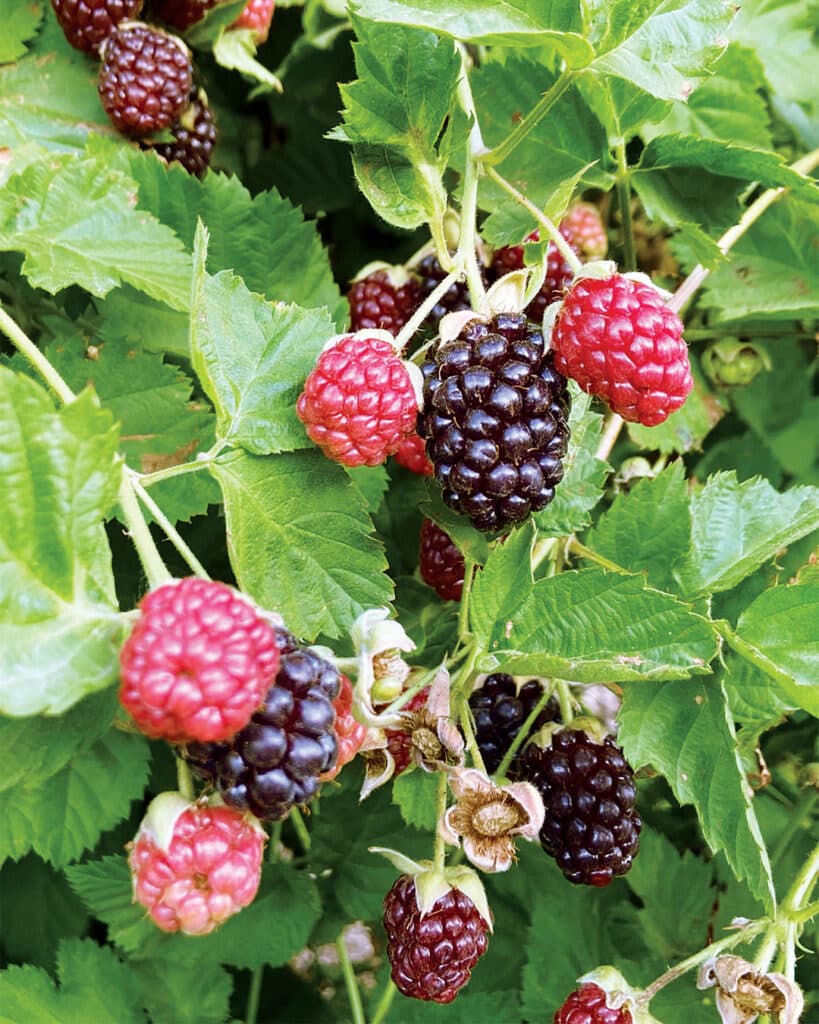
“I really wasn’t crazy about the flavor of the products I’d been tasting until I tasted these original berries. Then I realized why people fell in love with boysenberries in the 1930s,” says Boysen Fitzgerald. Today it’s her mission to spread the plants far and wide. “The biggest dream we have is to get as many of my grandfather’s vines into people’s backyards.” The most recent offering of 800 tip-starts sold out in 24 hours. “We kind of underestimated the enthusiasm people would have,” she says.
Of particular joy is the U-pick experience that opened in 2020 at the height of the pandemic. “People could come outside with their families. Our vines are in rows that are eight feet apart. People were assigned rows at a safe distance,” says Boysen Fitzgerald. Guests are allowed to eat as many berries as they’d like while picking, and are encouraged to do so to determine the degree of ripeness they prefer. Both Jepsen and Faessel have been guests at the farm that developed from their research project. The season is expected to open in late May.

“It’s a labor of love, especially on Tom’s part. He’s so dedicated. He’s got such a good head for business,” says Boysen Fitzgerald. “It’s a connection with my heritage that is just really, really important and powerful to me.” •
Rudy’s Original Boysen Berry Farm • www.rudysoriginal.com
6282 County Road 23, Orland

